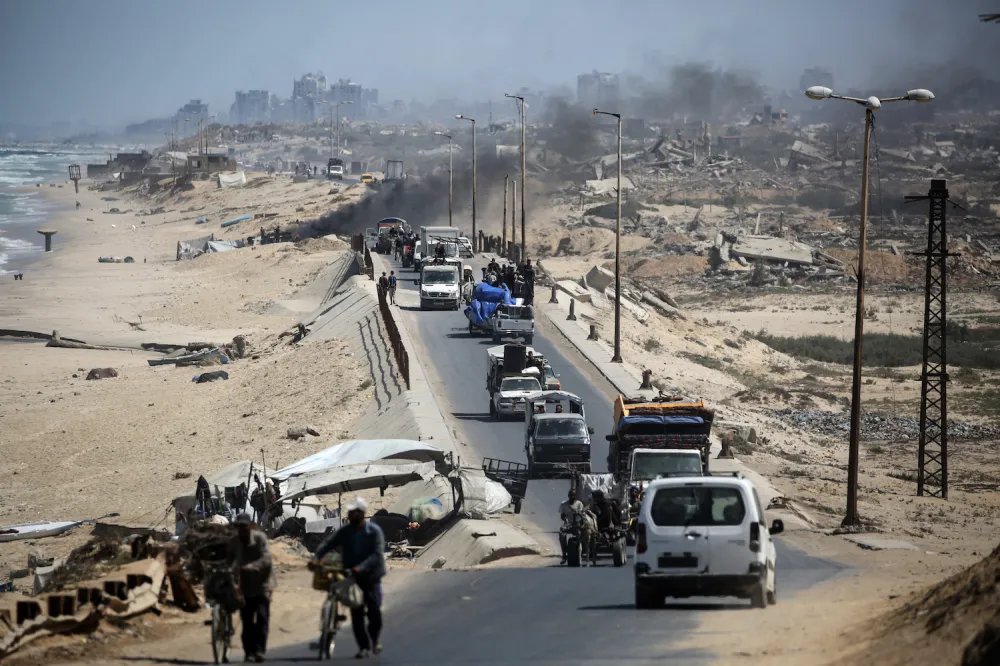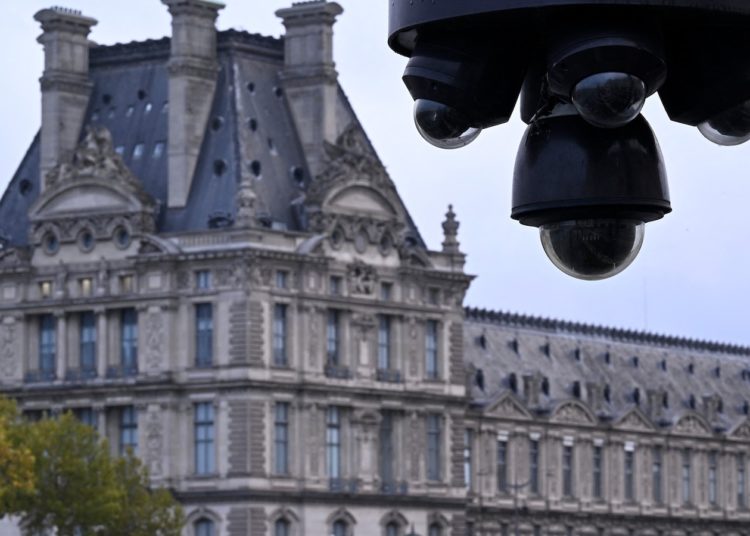Welcome back to World Brief, where we’re looking at Israel’s expanded offensive in Gaza City, the removal of Thai Prime Minister Paetongtarn Shinawatra, and European military support for Ukraine.
‘Dangerous Combat Zone’
Israel launched the “initial stages” of its planned expanded offensive into Gaza City on Friday, declaring the heavily populated area a “dangerous combat zone.” Foreign leaders and rights activists have urged Israel not to proceed with its Gaza City operation, citing concerns about the detrimental impact that it will likely have on the region’s dire humanitarian crisis.
But Israeli Prime Minister Benjamin Netanyahu maintains that such an offensive is vital to dismantling Hamas’s last major stronghold. According to senior Israeli officials, a network of Hamas-used tunnels remains functioning throughout Gaza City. “We will intensify our strikes until we bring back all the kidnapped hostages and dismantle Hamas,” Israeli military spokesperson Avichay Adraee said on Friday. Ahead of the offensive, Israel’s military called up an additional 60,000 reservists on top of extending the active duties of 20,000 others.
Also on Friday, Israel suspended its “tactical pauses” on carrying out military operations in Gaza City during the daytime. These were first imposed last month to allow food and aid deliveries to enter the area at the urging of the United Nations and rights groups. The world’s leading hunger monitor last Friday officially declared famine in Gaza City and its surrounding areas, and experts now warn that renewed fighting will only make matters worse.
More than half of Gaza’s 2 million residents live in Gaza City. Adraee on Wednesday issued a statement saying that evacuating the city was “inevitable.” He claimed that there were “vast empty areas” in the southern Gaza Strip where displaced Gaza City residents could go, adding that families who relocated there would be given abundant humanitarian aid. In the past week, around 23,000 people have evacuated the city, the United Nations reported on Thursday. Meanwhile, the death toll in Gaza surpassed 63,000 people on Friday, according to the Gaza Health Ministry.
“This will have a horrific impact on people already exhausted, already malnourished, already bereaved and displaced, and deprived of basics needed for their bare survival,” U.N. spokesperson Stéphane Dujarric said last week of the planned expanded Israeli military campaign in Gaza City. “Forcing hundreds of thousands to move south is a recipe for further disaster and could amount to forcible transfer,” which is considered a crime against humanity under international law.
Netanyahu is facing growing pressure within Israel and from foreign leaders to secure a cease-fire and hostage release deal. Hamas accepted an Arab-proposed framework last week calling for a 60-day truce and the release of some Israeli hostages for Palestinian prisoners. But Netanyahu remains opposed to the offer, instead calling for the release of all hostages and an end to the war “on conditions that are acceptable for Israel.”
“We will not rest or be silent until we return all of our hostages home—both the living and the dead,” Netanyahu said. Nearly 50 hostages remain in Gaza, of whom only 20 are believed to still be alive. On Friday, Israeli forces recovered the bodies of two killed captives held in Gaza City: Ilan Weiss, who was killed during Hamas’s Oct. 7, 2023, attack on Israel, and another unnamed individual.
Today’s Most Read
- Trump’s Economic Policy Is More Radical Than You Think by Howard W. French
- China and India May Be Moving Toward a More Coordinated Foreign Policy by Chietigj Bajpaee and Yu Jie
- Kissinger, Brzezinski, and the Promise of Realism by Daniel Fried
What We’re Following
Ethics violation ruling. Thailand’s Constitutional Court removed Prime Minister Paetongtarn Shinawatra from office on Friday after ruling in a 6-3 vote that she violated ethics rules during a phone call in June with former Cambodian leader Hun Sen. The ruling delivers a devastating blow to the Shinawatra political dynasty, which has held power for more than two decades, and triggers the process to determine the country’s next prime minister.
June’s infamous call was made at the height of Thai-Cambodian tensions, when a deadly border dispute sparked rare clashes between the two neighbors. In an audio recording of the call leaked by Hun Sen, Paetongtarn can be heard calling the Cambodian official “uncle” and referring to a Thai army general as an “opponent.” Paetongtarn maintains that her deferential tone was a negotiating tactic, but critics have suggested that her words risked Bangkok’s national security.
Deputy Prime Minister Phumtham Wechayachai has overseen Paetongtarn’s responsibilities since she had her duties suspended in early July. Phumtham will hold office until the parliament selects a new prime minister. Although Paetongtarn’s Pheu Thai Party still leads the governing coalition, which has a slim majority in the parliament, Friday’s ruling could further weaken its influence, meaning Pheu Thai’s chosen candidate may not be guaranteed. To avoid this, the prime minister’s cabinet could choose to dissolve the parliament and call for new elections. No vote has been scheduled thus far.
Backing Kyiv. European defense ministers convened in Copenhagen on Friday to pledge their continued support for Ukraine, one day after Russian forces launched a deadly attack on Kyiv that killed at least 23 people and damaged a diplomatic compound. In addition to discussing European troop deployments, expanded military trainings, and the freezing of Moscow’s assets, officials debated what security guarantees could look like in a future peace deal.
Among the options under consideration, European leaders are weighing the creation of a 40-kilometer (or roughly 25-mile) buffer zone between the Russian and Ukrainian front lines, Politico reported. A coalition of 30 countries—including Australia, European nations, and Japan—have also signaled their support for the creation of a so-called reassurance force of European troops to act as peacekeepers, though the United States is demanding that Europe carry the lion’s share of the burden, European Union foreign-policy chief Kaja Kallas said.
Where the White House has decided to engage, though, is in military sales. On Thursday, the U.S. State Department approved a $825 million arms sale to Kyiv that will include extended-range missiles and related defensive equipment. Money for the purchase will come from NATO allies Denmark, the Netherlands, and Norway as well as from U.S. foreign military financing, according to the State Department.
Growing list of grievances. Thousands of people protested across Indonesia on Friday after a police vehicle hit and killed a civilian. The crash took place near the site of violent clashes outside Indonesia’s parliament building in the capital of Jakarta the day before, where demonstrators were voicing anger over lawmakers’ increased monthly housing allowances at a time when labor unions are demanding higher wages. Thursday’s incident has since added calls for police reform to protesters’ mix of grievances.
According to Jakarta police chief Asep Edi Suheri, seven police officers have been arrested in connection with the death. But experts warn that this may not be enough to quell the demonstrations, some of which turned violent on Friday, as protesters also demand the police chief’s removal.
“I am shocked and disappointed by the excessive actions of the officers,” Indonesian President Prabowo Subianto said on Friday. However, the president—in office for less than a year—also urged Indonesians to “remain vigilant” and orderly. “In a situation like this, I urge the public to remain calm and to have confidence in the government that I lead,” he added.
What in the World?
In an effort to further diversify its trade partners due to U.S. tariffs, South American trade bloc Mercosur said on Monday that it would reopen free trade negotiations with which country?
A. Mexico
B. Canada
C. Colombia
D. Chile
Odds and Ends
A house listing on an Argentine real estate website may have uncovered a stolen work of art. On Monday, Dutch newspaper Algemeen Dagblad traced an interior photo of a home in an Argentine costal town to Italian painter Giuseppe Ghislandi’s “Portrait of a Lady,” which Nazis seized from a Jewish art dealer in Amsterdam in the 1940s. The house listing was posted by one of the daughters of Friedrich Kadgien, a financial advisor to Adolf Hitler who fled to Buenos Aires after World War II. Kadgien’s daughters reportedly refused the AD’s repeated requests for an interview.
And the Answer Is…
B. Canada
A group of Brazilian business leaders will travel to Canada in September to resume discussions, FP’s Catherine Osborn reports in Latin America Brief.
To take the rest of FP’s weekly international news quiz, click here, or sign up to be alerted when a new one is published.
The post Israel Launches Initial Expanded Operation Into Gaza City appeared first on Foreign Policy.




